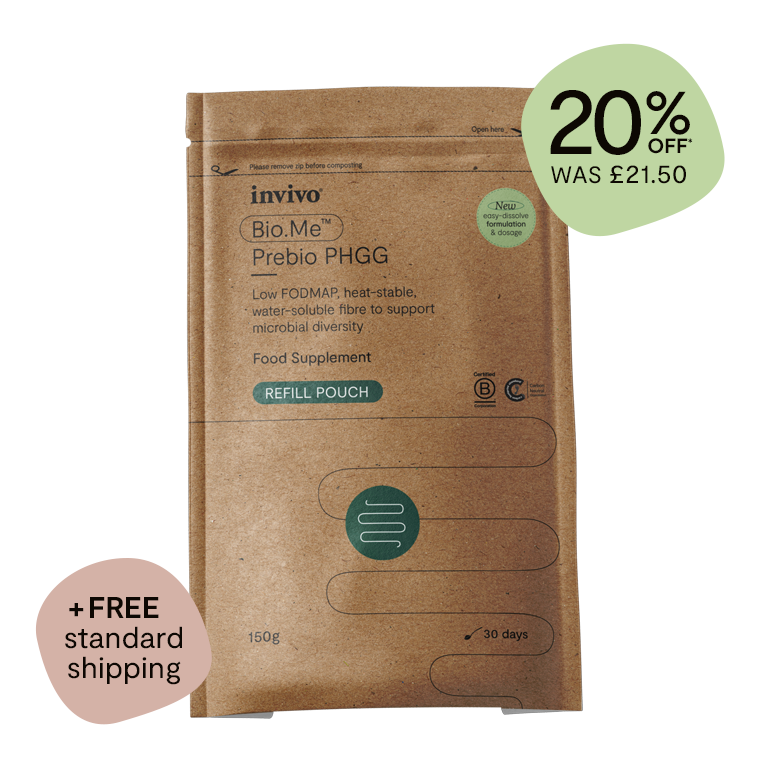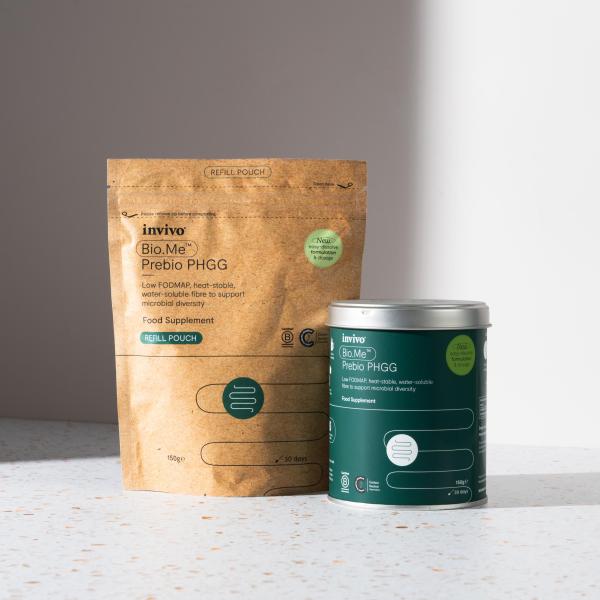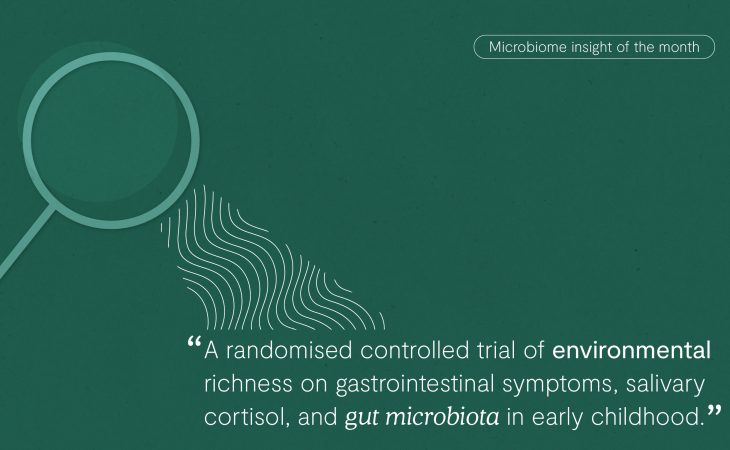A randomised controlled trial of environmental richness on gastrointestinal symptoms, salivary cortisol, and gut microbiota in early childhood.
Introduction
GI issues are common in young children and can affect their wellbeing and ability to take part in daily life, including school. These problems, which can hinder their social and academic development, have in some cases been linked to stress and changes in the gut microbiota. While some research suggests spending time in nature can improve health and reduce stress, little is known about its effect on children’s digestive health and gut microbiota.
A recent study published in the journal Nature1 investigated whether spending time outdoors in nature could improve digestive symptoms, reduce stress levels, and positively influence the gut microbiota in children aged 5 to 6 years.2 Researchers tested whether a “nature childcare” programme, where children spent extra time in green, biodiverse outdoor areas, had a measurable impact compared to regular indoor childcare.
Methods
This was a randomised controlled trial including 130 children from four nurseries in Japan. The children attended nursery from Monday to Friday for 6 hours a day.
They were randomised into two groups:
- Intervention: The nature childcare group consisted of 64 children. They spent four hours once a week for one month in nearby natural settings (like forests and grassy areas), engaging in typical nursery activities like crafts, walking, exploring, and reading.
- Control: The regular childcare group consisted of 66 children who continued their usual nursery routine indoors or in limited outdoor space.
Children’s digestive symptoms were assessed using a questionnaire filled in by parents. Behaviour was assessed via a checklist. Researchers also collected saliva samples to measure levels of stress-related markers (cortisol and amylase), and stool samples to study the gut microbiota. At the end of the trial period (one month) after assessment, the regular childcare group received the same outdoor experiences as the nature childcare group to ensure equality.
Key Results
- Digestive symptoms improved in the nature group. After one month, children in the nature childcare group had fewer digestive complaints, especially abdominal pain and constipation, compared to those in the regular childcare group.
- Salivary cortisol and amylase, both indicators of stress were significantly lower in the nature group. This suggests the nature activities had a calming effect on the children’s bodies.
- The variety of gut bacteria, known as alpha diversity and measured by the Shannon index, increased in the nature group. More diverse gut microbiota is generally considered a sign of better gut health. However, there was no strong difference in overall gut composition (beta diversity) between the two groups.
- Both groups showed some improvement in behaviour scores, but there were no major differences between them overall. Some specific improvements, such as attention issues, were only seen in the nature group.
What does this mean?
Spending time in nature on a weekly basis may help improve children’s digestive health and reduce stress. This could be because natural environments are calming, provide more freedom to explore, and expose children to diverse microbes that may help balance their gut microbiome.
Limitations
Limitations include the relatively short study duration. There were also a number of factors that could have affected the results: Children’s home environments were not controlled and whilst parents did not officially know which group their child was allocated to, this could potentially be deduced by discussions with the children; the timings of saliva sample collection; missing data such as use of medications, including laxatives; delivery method (birth) and ownership of household pets. The study also did not track any long-term effects. However, given the promising positive effects, further studies with longer follow-up periods appear warranted to confirm these findings and to explore the potential mechanisms driving the changes.
Conclusion
Getting out in nature is a simple, low-cost intervention which could prove valuable in Early Years care; supporting digestive health, reducing stress and potentially improving behaviour. Further research is needed to see if these benefits last over time and apply in different settings.




